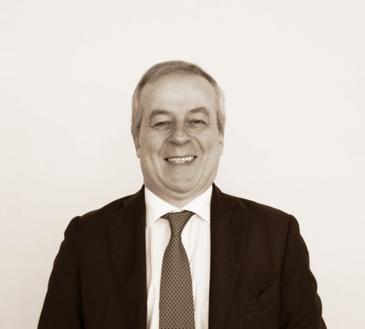TRACE Consortium

The Consortium consists of Partners from Basic, clinical and industrial Research and GMP-facilities (Good Manufacturing Practice laboratory), with proven qualification and leading Expertise in the field of HSCT (Haematopoietic Stem Cell Transplantation), GMP-manufacturing and adoptive T-cell tansfer. Impact and Exploration will reach beyond refractory viral infections post HSCT.
The Ludwig-Maximilians-University (LMU) is one of the leading teaching and research university in Germany. The combination of basic science and clinical care enables innovation through translating results from basic science into novel treatment approaches and clinical application. The statistical support of the TRACE-Project will be given by the Institute for Medical Information Sciences, Biometry and Epidemiology (IBE) of the Ludwig Maximilians University Munich.

Coordinator
Prof. Dr. med Tobias Feuchtinger

Project Management
Dr. Theresa Käuferle

Clinical Trial Manager
Mira Reger

Trial Statistician
PD Dr. Markus Pfirrmann

OPBG (Ospedale Pediatrico Bambino Gesù) is a scientific institute in Rome, Italy, for research and healthcare, being the Italian main paediatric hospital providing advanced health care for children and performing basic, clinical and translational research activities. The hospital’s clinical activities run side by side with its scientific research, aiming at constantly improving and innovating diagnostic and therapeutic procedures. The Department of Haematology/Oncology and Transfusion Medicine is the main Italian centre for the care and research in the field of Paediatric Haematology and Oncology and it is internationally known as a centre of excellence.


PhD Giuseppina Li Pira

LUMC has a long-standing programme in allogeneic stem cell transplantation and adoptive T-cell transfer. The first allogeneic transplant in Leiden has been performed half a century ago in a paediatric patient. In the past 25 years the research of the Departments of Hematology and Pediatrics has focused on the development of new strategies to exploit adoptive T-cell transfer in the context of allogeneic stem cell transplantation and several adoptive cellular immunotherapy studies have been performed in the recent years. The research groups have broad experience in transplantation immunology, immune monitoring and translational research bringing cellular therapeutic strategies to clinical applications.

Prof. J.H.F. Falkenburg

Dr. Inge Jedema

Dr. Peter van Balen
PI

Nancy University Hospital is one of the leading clinical research hopsitals in France, ranking 10th among the 30 French university hospitals for scientific publications (SIGAPS ranking from the French Health Ministry) and has also been recognised and granted through the French excellence initiative (RHU, Isite and Cohort programs) and through the coordination of several European programmes. The combination of outstanding basic science and high-end clinical care enables innovation through translating results from basic science into novel treatment approaches and clinical application. Recently, a new research team CECITA (Cell Engineering, Cellular Immunotherapy and Translational Approaches) was created within a CNRS unit (UMR 7365, IMoPA) by Prs MT. Rubio and D. Bensoussan.

Pr Danièle Bensoussan
The Institute of Cellular Medicine (ICM) was established in 2008 to carry out world-class research to deliver advances in the understanding of human disease and to translate that knowledge to improved diagnostics and therapeutics for patient benefit. It is ranked 16th in the UK in terms of research power, based on the results of the Research Excellence Framework (REF) 2014. The REF 2014 results showed that the vast majority of Newcastle University’s research was placed in the top two categories of 4* (world leading) or 3* (internationally excellent).

Dean Bradley

Prof. Andrew Gennery

Prof. Anne Dickinson

The Ghent University Hospital (UZG) invests in research and training, which is performed in close interaction with the Faculty of Medicine and Health Sciences of Ghent University.
Physicians and medical specialists are well trained and in close collaboration with researchers, innovative techniques for diagnosis and treatment are developed and rapidly translated from bench to bedside, leading to improved care.

Prof. Tessa Kerre

Miltenyi Biotec is a global provider of products and services that advance biomedical research and cellular therapy. Our innovative tools support research at every level, from basic research to translational research to clinical application. Used by scientists and clinicians around the world, our technologies cover techniques of sample preparation, cell isolation, cell sorting, flow cytometry, and cell culture.
Our 30 years of expertise spans research areas including immunology, stem cell biology, neuroscience, and cancer. Today, Miltenyi Biotec has about 3,000 employees in 28 countries – all dedicated to helping researchers and clinicians make a greater impact on science and health.

The full–service CRO (Clinical Research Organisation) Orion has performed over 1 500 studies. ORION is fully experienced in managing multi-national, multi-centric studies and is fully adept at the co-ordination of studies across the EU, utilising a network of both office-based and decentralised CRAs who speak the local language.
Their CRAs are “Site Project Managers” and are on-hand to provide support as and when it may be required by the sites.

